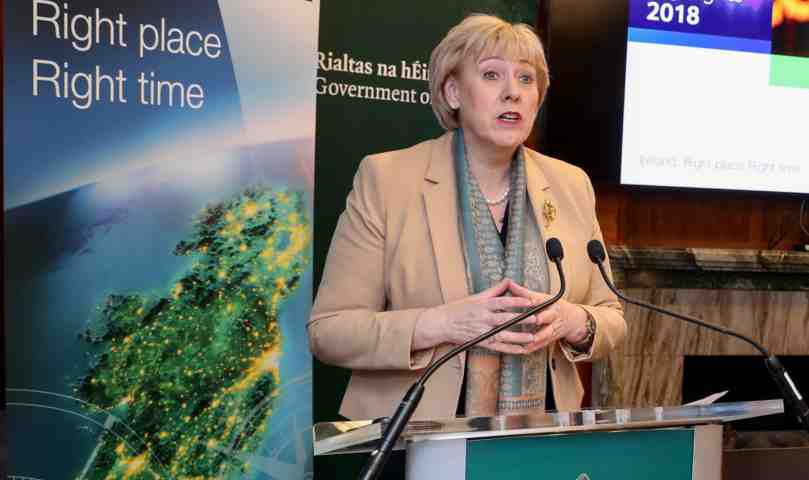Businesses that buy products from Britain will be taking on new responsibilities after Brexit, the government has warned, and should prepare for their role as importers into the European Union.
Business minister Heather Humphreys (pictured) said that all businesses concerned have to prepare, make all the necessary decisions, and complete all the required administrative actions before October 31 in order to avoid possible disruption.
The minister stated: “After Brexit, goods destined for or coming from the UK will be subject to EU rules on import/export to and from third countries. Businesses must take the necessary steps to ensure compliance with the EU’s import/export prohibitions and restrictions, including checking their supply chain. This applies regardless of whether or not there is a Brexit deal.”
The minister stressed that:
- Products imported from the UK post-Brexit need to be EU compliant.
- Businesses need to understand the vulnerabilities in their supply chains. They need to know the full supply chain for all their products (machinery, chemicals, etc.) and how it is linked to the UK, including via distributors.
- Irish companies sourcing their product from the UK after Brexit may become an EU importer with additional legal responsibilities for compliance of the product with EU law.
- When UK leaves, UK registrations, authorisation or notifications under REACH and CLP will not be valid. This means the role of businesses in Ireland may change from being a downstream user of chemicals to an importer.
Junior minister Pat Breen added: “Before the UK leaves the EU, it is critical that businesses assess all aspects of their potential exposure. After Brexit, companies in Ireland will no longer be able to rely on UK-based notified bodies to undertake third party conformity assessments required under relevant EU law.
“They will instead need to use an EU-based notified body legally designated to carry out conformity assessments. A list of notified bodies is available on the EU NANDO website.”
Minister Humphreys added: “ Some businesses may not think that they will be exposed post Brexit, but if they trade with the UK, including Northern Ireland, or their supply chain is partly dependent on the UK they will be.
“I am urging businesses of all scale to put their supply chains under the microscope to check for risks and vulnerabilities to the UK. If their business depends on sourcing a product, component or perhaps a service from the UK, their supply chain may be at risk.
“Businesses could very well be exposed through their supply chain upstream, such as those who import all of their ingredients, materials or components from the UK. They may be impacted with tariffs, and customs-related delays at the port, all of which will have considerable impacts for the cashflow of a business,” the minister added.












